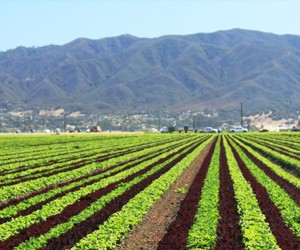The Stream, November 14: Turning the Tides of Privatization
The Global Rundown |
In the past 15 years, privatized water supplies have been increasingly transferred back to public ownership, and in the past month, France, Italy and Switzerland have been hit hard by floods and landslides. New York says ‘no’ to a desalination plant, and environmental groups say ‘no’ to an expanded tar sands pipeline running from Canada to Wisconsin. Meanwhile, Turkmenistan says ‘yes’ to an agreement protecting the Caspian Sea. Nepal is capitalizing on India’s financial generosity by developing hydropower, irrigation, and roads, while Coca Cola is capitalizing on India’s water – 3 million liters per day in the State of Gujarat, to be exact.
“Desalination is an effort of last resort in a water-rich state” – Roger Downs, Sierra Club Atlantic Chapter, on a proposed (and rejected) desalination plant near New York City. (Bloomberg News)
By The Numbers |
300 millimeters Amount of rain reported by Robiei, Switzerland over the course of four days – more than double the total average November precipitation. Floods and landslides have been plaguing central Europe since early in the month and the rain is expected to continue. Al Jazeera
$US 1 billion Line of credit extended to Nepal by India, which will be used to develop hydropower, irrigation, and roads. eKantipur.com
7.5 million gallons/day Capacity of proposed desalination plant on the Hudson River that was summarily rejected by the New York state utility regulator on Thursday. Bloomberg News
Science, Studies, And Reports |
A study released Thursday by the Transnational Institute says that over the past 15 years, more than 180 municipalities in 35 countries have regained their water systems back from the hands of private companies. The study cites increased water bills, lack of transparency and lack of investment as reasons for the trend. Reuters Africa
On The Radar |
Turkmenistan has approved two international agreements meant to protect the Caspian Sea. The treaties, signed at the Caspian Summit in 2014, call for conservation and rational use of the water body, which happens to hold some of the vastest hydrocarbon reserves in the world. AzerNews
Several environmental groups have sued the U.S. State Department over its relaxed approval of an expanded Enbridge tar sands pipeline from Canada to Wisconsin. Eight organizations are insisting that the project must be halted until a more thorough environmental review is conducted. Reuters
A Coca Cola plant in the Indian State of Gujarat has been allotted 3 million liters of water per day, a move that has drawn outrage from local NGOs and prompted an Indian politician to address a concerned letter to the Chief Minister in Gujarat. This is not Coke’s first brush with controversy in India; similar opposition was raised regarding water use at plants in Kerala and Uttar Pradesh. Business Standard
is both a scientist and a journalist, she holds an MS in Environmental Engineering from Michigan Technological University, and she brings proficiency in ESRI’s ArcGIS mapping software.






This trend is unfortunate. We must act to keep water reserves in the hands of private owners, and out of the hands of government. We simply cannot live without water, and must not allow government to degrade and eventually destroy this valuable resource.